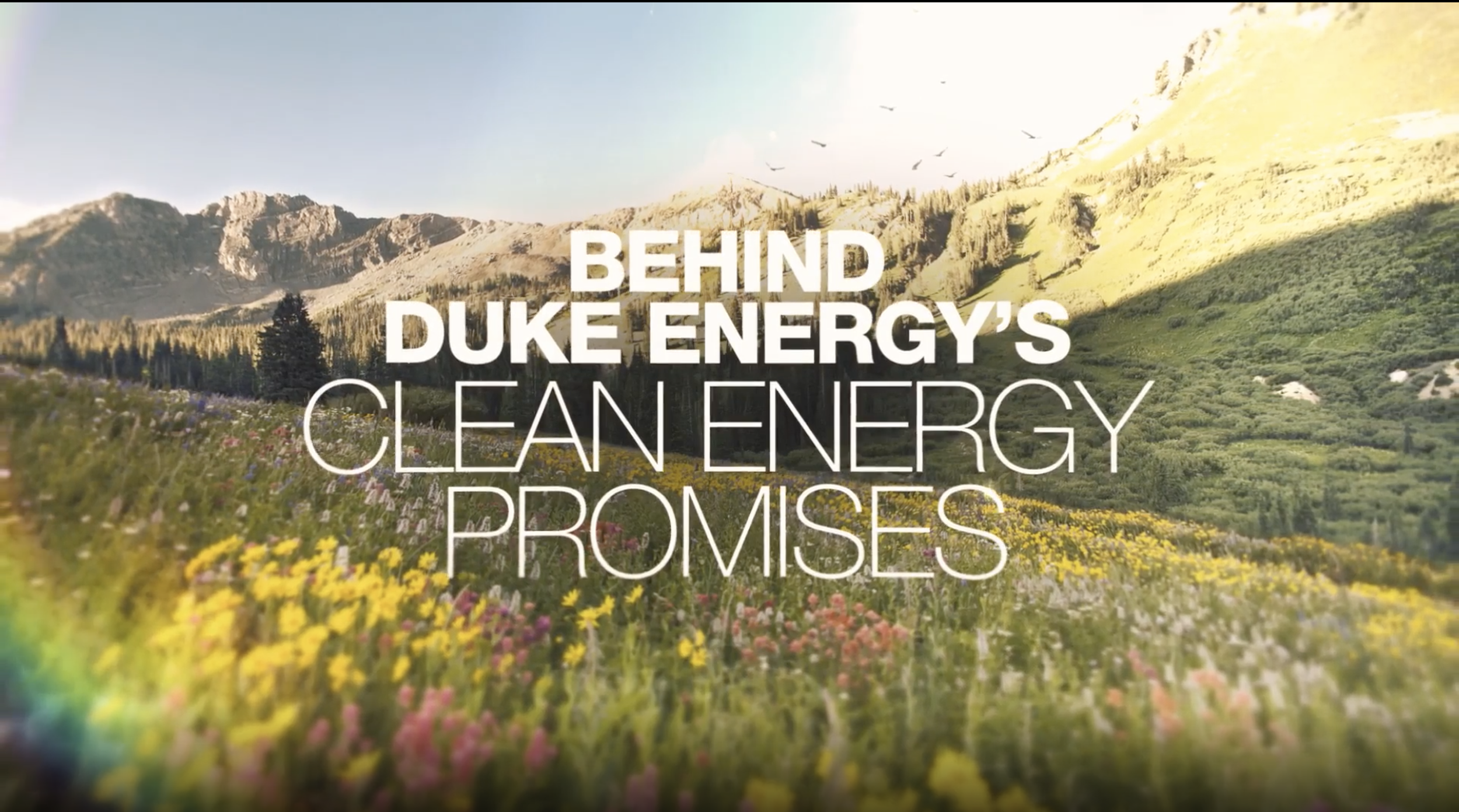Duke Energy Needs to Come Clean.
-
WHAT DUKE WANTS YOU TO THINK
Duke Energy says it’s committed to producing net-zero carbon emissions by 2050, and having a 70% clean energy portfolio by 2030.
-
THE DIRTY TRUTH
Duke still relies on dirty sources of energy, like biomass and methane, even though they produce some of the most noxious greenhouse gas emissions.
-
WHAT WE CAN DO ABOUT IT
If you believe North Carolina deserves a clean energy future, then join the NRDC, NCLCVF, and citizens across the Tar Heel state and tell your portfolio manager to keep Duke Energy out of your ESG investments.
background
Duke Energy is misrepresenting to its investors, telling them that the energy it produces is clean. The truth is that Duke's "clean" energy promises rely on dirty sources like biomass and methane gas.
If you care about clean energy investing that isn’t speculative or risky, you don’t want Duke in your ESG investments.
Under North Carolina’s House Bill 951, Duke Energy must submit a plan to the North Carolina Utilities Commission by May 16, 2022 detailing how it will achieve a 70% reduction in its greenhouse gas emissions (from 2005 levels) by 2030, and reach net zero emissions by 2050.
Instead, Duke has been stalling while they look for ways to continue producing energy from methane, as well as from controversial energy sources like nuclear, biomass, and biogas, and push back the 2030 deadline required by the new law. And they've ignored the Utilities Commission's order to engage underserved communities in the planning process.
THE REAL WAY TO A REAL CLEAN ENERGY FUTURE
Making investments in clean energy now will reap enormous economic benefits for North Carolina. Wind and solar farms, for example, are the cheapest forms of new power. That means that in many places, it’s cheaper to build new renewables than to run existing coal-fired facilities or build out expensive and speculative small modular nuclear reactors or methane infrastructure that will soon be obsolete.
Clean energy is already fueling the North Carolina economy. North Carolina is the second-biggest state in the country for solar power—representing almost $8 billion in investments and 7,000 permanent local jobs.
Cheaper, cleaner energy means lower power bills, more good jobs, cleaner air, and no greenhouse gas emissions. All of those things help underserved communities the most because they are most burdened by high bills, power plant pollution, and carbon-created climate impacts.
Only with an equitable clean energy portfolio will Duke be worthy of inclusion in an ESG investment portfolio.
The bottom line
Meeting the energy goals of HB 951 are critical to preserving and protecting North Carolina’s environment AND driving economic growth across the state.
Duke Energy is a major partner and leader of those goals – but instead of secretly working to circumvent the law’s targets and mission, Duke Energy needs to come clean and put forth real standards for a real clean energy future.
Who we are
Natural Resources Defense Council (NRDC) is a national not-for-profit organization with more than three million members and e-activists. We frequently use power sector modeling to understand the costs and benefits of different policy proposals. NRDC’s analysis of potential policies to comply with the climate goals of Executive Order 80 was performed by energy consultancy ICF, using their Integrated Planning Model (IPM®), and assumptions developed by NRDC. IPM is a detailed model of the electric power system that is routinely used by the electricity industry and regulators, including the U.S. Environmental Protection Agency, to assess the effects of environmental regulations and policy. It integrates extensive information on power capacity and generation, technology performance, transmission, energy demand, electricity and fuel prices, policies, and other factors. IPM then determines the most cost-effective way to meet electricity needs, based on its detailed representation of the U.S. electricity system. It can build new power plants, retire existing plants, or ramp them up and down to meet demand in the least-cost way. Assumptions for this analysis were developed by NRDC, relying primarily on publicly available projections from various parts of the U.S. Department of Energy (DOE).
NC League of Conservation Voters Foundation (NCLCVF) connects and engages people to protect our natural environment and promote the well-being of our communities. We turn environmental values into NC priorities by engaging people in the democratic process, organizing in communities to connect environmental policies to people’s daily lives, cultivating environmental leaders, and advocating for policies at the state and local level that protect the health and quality of life for all North Carolinians, with an intentional focus on systematically excluded communities of color. We reach greater levels of justice when we connect the root causes of climate change and environmental degradation to economic and racial injustice, and fight together to create impact.
PAID FOR BY THE NATURAL RESOURCES DEFENSE COUNCIL AND THE NC LEAGUE OF CONSERVATION VOTERS FOUNDATION


